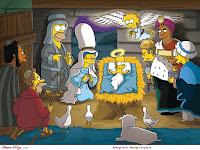Yes, I went there.
So, more than a few times here, I’ve talked about the need to pare away non-essential things. Characters. Names. Descriptions. Maybe whole chapters. These are all things that start to weigh my manuscript down like concrete blocks as it tries to tread water in my reader’s consciousness. Or something like that.
Maybe a better way to think of them is speed bumps. I might not notice one or two, but hitting four or five in a row is going to get annoying really quick. And hitting one once I get going fast… well, it either means slamming on my brakes or possibly crashing. It’s definitely going to be jarring.
But, as I’ve also tried to say once or thrice before, that doesn’t mean I need to strip everything down to a bare skeleton. There’s nothing wrong with elements that don’t tie directly—or even indirectly—to the plot or story of my manuscript. It’s more about being very careful how and when I deploy them.
And to illustrate this point, I’d like to tell you about Tim Cappello.
Tim Cappello’s a well-known-in-the-industry singer and saxophonist who had regular gigs with Ringo Star, Peter Gabriel, and spent over a decade touring with Tina Turner (he’s in the video for “We Don’t Need Another Hero”). But most of you probably know him for an incredibly tiny background part he had in an ‘80s vampire movie. And just putting those clues together, I bet most of you’ve already figured out who he is. He’s the legendary “Sax Man” from The Lost Boys.
Think about how weird that is, you immediately knowing who I was talking about. The entire concert scene’s maybe two minutes, and it’s super-generous to say he’s on-screen for twenty seconds of that. So running the math real quick (granted, not my strong suit) he’s maybe… one third of one percent of the movie?
And let’s be honest. The Sax Man doesn’t even do anything, plot-wise. He’s just window dressing that makes the beach concert feel a little more ‘80s. The whole scene’s pretty much just an excuse for Michael to gaze across the crowd at Star.
So… why is Cappello such an excellent background character in The Lost Boys? One that we all remember thirty years later? More than we tend to remember one of the members of the vampire gang was Bill from the Bill & Ted movies. No, seriously. Alex Winter is one of the vampires. He’s the one with the denim vest who gets staked in their cave.
Anyway, back on track…
First off, the Sax Man’s not excessive. I mean, okay, yeah he’s an oiled-up bodybuilder singing and doing hard rock saxophone riffs next to a flaming barrel. No denying that. But he’s the lead performer at a nighttime California beach concert in the late ‘80s. He’s not exactly over-the-top in that context. Plus, like I said, not even half a minute of screen time, and that’s broken into five or six shots. We hear him more than we see him, which also helps hint that he’s much more about the background and the setting than the actual story. He doesn’t even have a name. I mean, we all call him “Sax Man,” but apparently the actual credits at the end of the movie call him “Beach Concert Star” and Wikipedia just lists him as “Saxophone Player.”
Also, we kind of get him out of the way early. The beach concert’s just eleven minutes into the movie. We’ve still got 90% of the story to go, and we haven’t even introduced half the characters yet. It’s not like the movie’s bringing things to a halt so we can cut away to the singer at the concert.
 Finally… I mean, he’s cool. He’s good-looking guy singing a high-energy song in front of a crowd. He’s having fun, they’re having fun. If I’m going to cut away from my leads and the plot, I want it to be to someone (or something) interesting. And Sax Man is definitely interesting.
Finally… I mean, he’s cool. He’s good-looking guy singing a high-energy song in front of a crowd. He’s having fun, they’re having fun. If I’m going to cut away from my leads and the plot, I want it to be to someone (or something) interesting. And Sax Man is definitely interesting.
So let’s break this down into some rough rules of thumb.
1) I don’t want to spend a lot of time on things that are just colorful set dressing (even if they’re people). As I’ve mentioned before, pages are precious and I only get so many of them. I can spend time on things not related to my plot… but I probably shouldn’t spend a lot of time.
2) I probably want to do it early. Sci-fi and fantasy editors will usually allow a little extra space for worldbuilding, and everyone expects me to set the tone with a few extra descriptions. But by their very nature, these additional details show up early in my story. If I’m doing a lot of worldbuilding in my third act, there’s a good chance something’s gone wrong.
3) If I’m going to use up a paragraph or three describing something… it should probably be something worth describing. Not something mundane, not something we see every day, not the kind of person we see every day. If it’s not something my characters would pay much attention to, why would I force my readers to examine it in detail?
Easy, yes? Three quick rules. They won’t hold in every instance, but they’re probably worth considering in every instance. If I’ve got a random colorful page describing that bus driver or this door frame, and it only kinda-sorta hits one of those guidelines… maybe that page should be used for something else.
Y’know… maybe something related to the story I’m telling.
Next time, I think I’d like to talk with you about creepy clowns, true love, and one of those common geekery movie flaws I see all the time.
Until then, go write.
And hey… you could listen to The Lost Boys soundtrack while you do.









